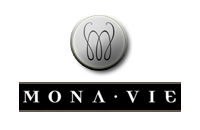A Quote by John P. Kotter
Great leaders understand that historical success tends to produce stable and inwardly focused organizations, and these outfits, in turn, reinforce a feeling of contentment with the status quo.
Related Quotes
Competition has never been more threatening than it is now. Innovative thinkers challenge the status quo in their organizations. They are often viewed as "troublemakers." They threaten the defenders of the status quo. So competition within an organization can also be brutal. The most effective leaders overcome "the ideology of comfort and the tyranny of custom" by being change agents themselves. They encourage and reward innovative thinking. I have observed that people only resist changes imposed on them by other people.
In the face of ambiguity, uncertainty, and conflicting demands, often under great time pressure, leaders must make decisions and take effective actions to assure the survival and success of their organizations. This is how leaders add value to their organizations. They lead them to success by exercising good judgment, by making smart calls when especially difficult and complicated decisions simply must be made, and then ensuring that they are well executed.
By going from the bottom-up again, we see where successes work, and you can also see where the status quo can be the biggest obstacle or roadblock to success. The kind of entrepreneurs in whom we need to invest are the kind who are willing to fight that status quo, bureaucracy, complacency, and corruption.
"Leadership" is a big topic today. We know that the world - nations and communities in addition to companies - needs more and better leaders. So I wanted to explore how leaders make a difference, how they can shift a negative cycle, turn around a losing organization, propel a team to victory when conditions aren't perfect. I saw that what leaders do is build confidence in advance of victory. Then the confidence they produce makes the hope of success turn into the reality of success, because people behave differently when they are surrounded by a culture of confidence.

































